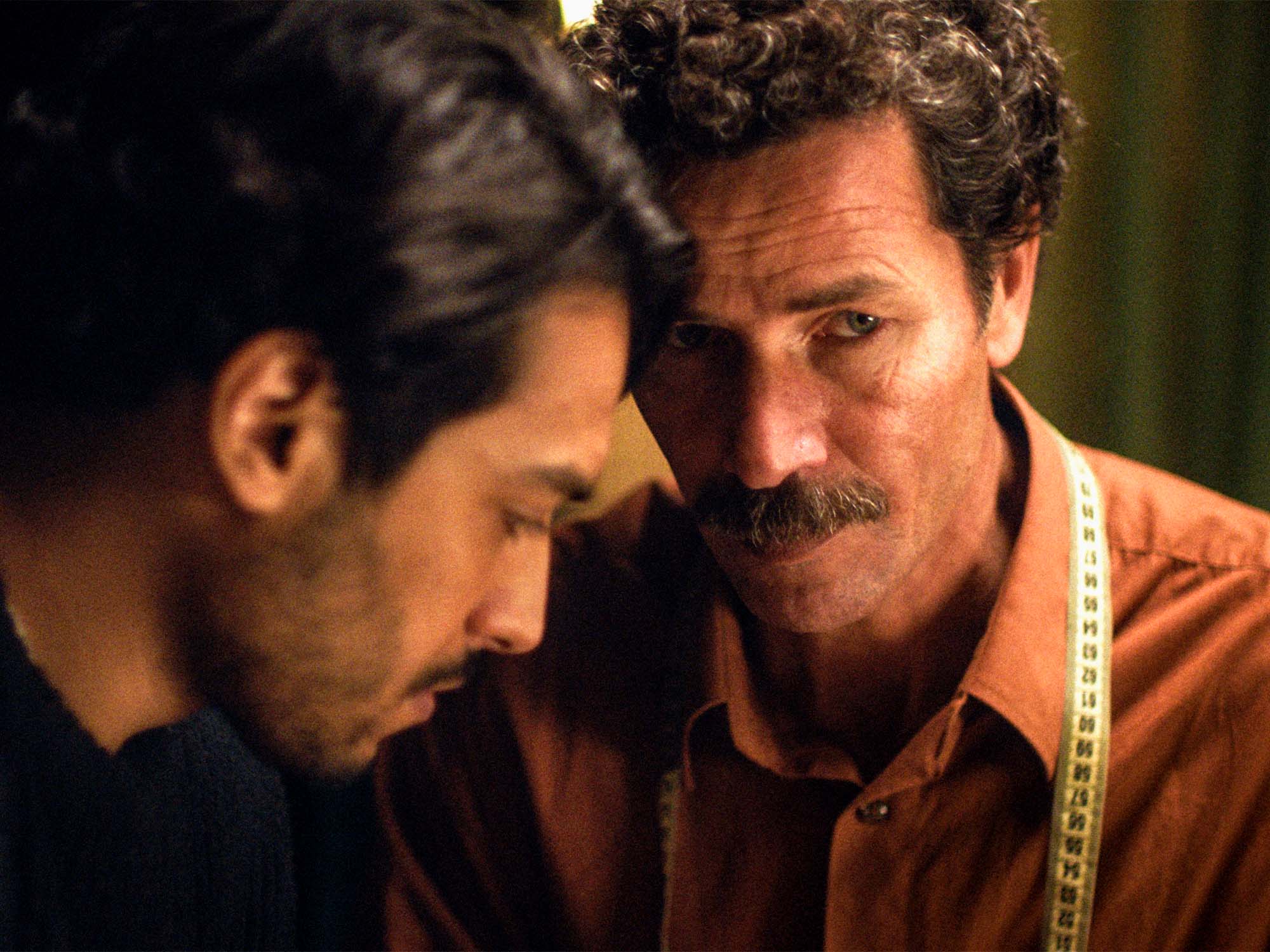
The Blue Caftan
There is a lot about intimacy, sacrifice and love to be found in the delicate, subtle nuances of Maryam Touzani’s deeply affecting second feature. Halim (Saleh Bakri) is a maalem, an expert tailor who runs a traditional caftan shop in one of Morocco’s oldest medinas alongside his wife of 25 years, Mina (Lubna Azabal). While Halim is the delicate artisan whose dying craft requires immense precision, Mina is the more stern, business-savvy of the pair, always intent on letting impatient clients know that their garments require so much time because her husband is “not a machine”. In fact, he refuses to use a sewing machine altogether, his craft solely relying on the hand-sewn tradition of textile work passed down to him by his father.
Each intricate, handcrafted caftan is made with such immense attention to detail that it can be handed down from one generation to the next without any of its quality being compromised. An anti-consumerist thread is woven neatly into the film’s fabric, starkly at odds with a consumer culture that’s enamoured with the convenience of quick, cheap, more accessible production.
But business is business, as the capitalist maxim goes, and garments need to be delivered to clients in some sort of timely fashion. Enter Youssef (Ayoub Messioui), a curious and gifted young apprentice whose arrival at the workshop imbues the working relationship between him and his maalem with a series of subtle, furtive glances while working tirelessly over fine silks and gold braids.

Dark, earthy tones and shades of ochre make up cinematographer Virgine Surdej’s colour palette, her camera expertly capturing the tight nooks and crannies of the workshop, the medina’s winding streets and the couple’s apartment. There’s something mesmerising about the editing rhythms as well, allowing us to luxuriate in the relationships between the three main characters and the textures of fabrics in the workshop in equal measure. Everything about The Blue Caftan feels tactile – from the rich threads being sewn into lush fabrics, to the acidic residue on tangerine skins, even in the steam of the hammam where Halim seeks out perfunctory sex with anonymous men.
Despite the overt exploration of Halim’s repressed sexuality, the implication that the film will unfold as a study about repressed desire slowly dissipates. Rather than another film about forbidden romance told through a maelstrom of yearning glances, it’s the complicated and entrancingly lived-in relationship between Halim and Mina that lies at the film’s core. Touzani steers clear of easy clichés and pitfalls that the film’s premise might suggest, giving a masterclass in restraint. and it’s Azabal’s exceptional portrayal of Mina, rather than Bakri’s Hamil, that emerges as the film’s beating heart.
Little White Lies is committed to championing great movies and the talented people who make them.
By becoming a member you can support our independent journalism and receive exclusive essays, prints, monthly film recommendations and more.
<p>Published 4 May 2023











































































